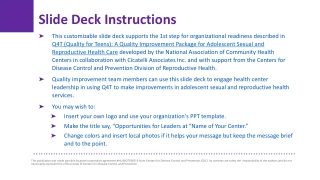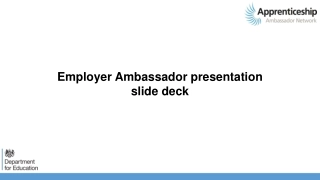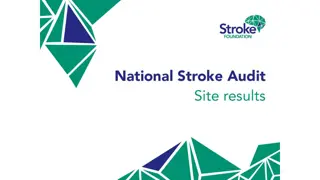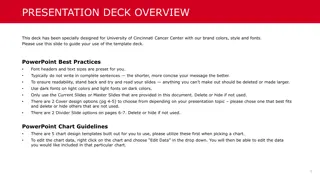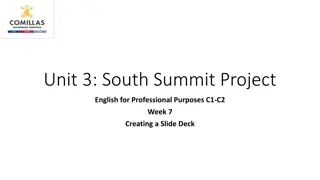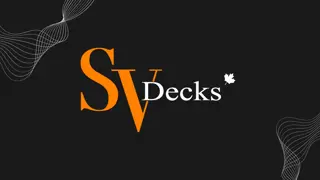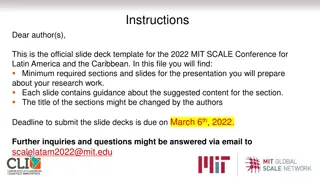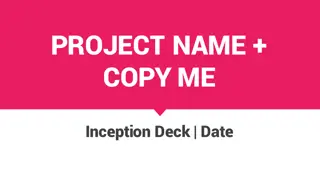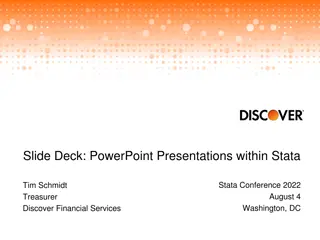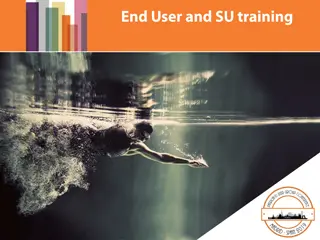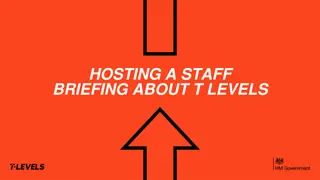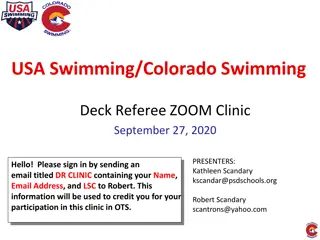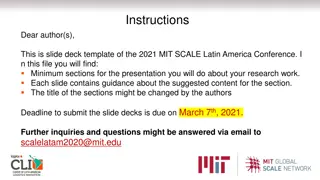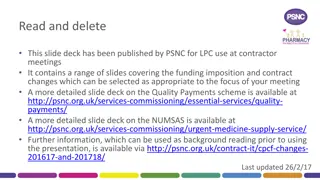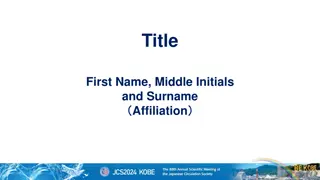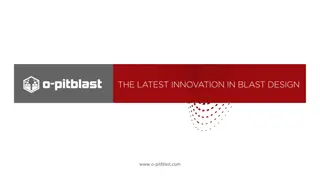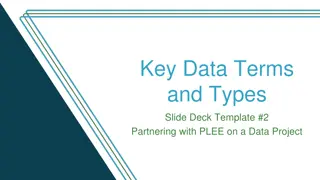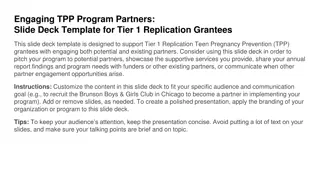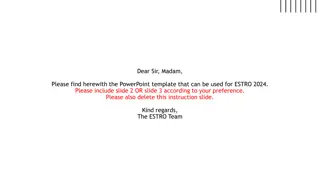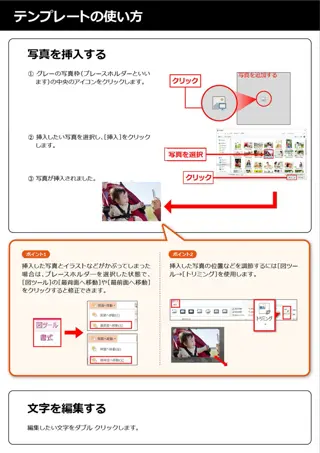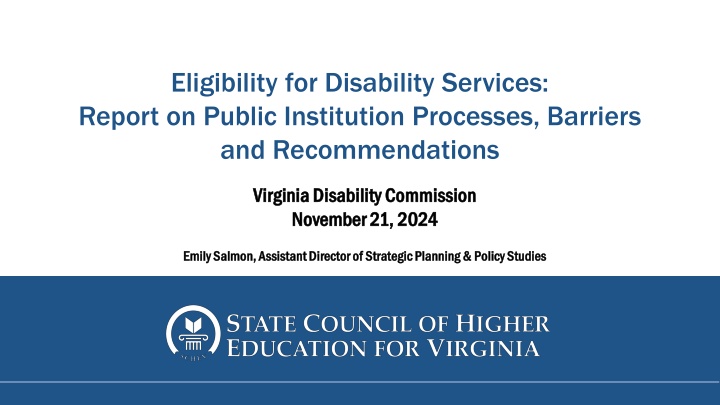
Improving Accessibility: Virginia Disability Services Report
This report by the Virginia Disability Commission focuses on the eligibility processes for disability services in public institutions, identifying barriers and providing recommendations. The study bill SB 21/HB 509 directs the examination of how Virginia's higher education institutions determine eligibility for accommodations, aiming to reduce barriers and improve the accessibility of services for students with disabilities. A workgroup composed of various stakeholders collaborated to assess best practices, guidelines, and documentation for accommodating students with disabilities in the state's public higher education institutions.
Download Presentation

Please find below an Image/Link to download the presentation.
The content on the website is provided AS IS for your information and personal use only. It may not be sold, licensed, or shared on other websites without obtaining consent from the author. If you encounter any issues during the download, it is possible that the publisher has removed the file from their server.
You are allowed to download the files provided on this website for personal or commercial use, subject to the condition that they are used lawfully. All files are the property of their respective owners.
The content on the website is provided AS IS for your information and personal use only. It may not be sold, licensed, or shared on other websites without obtaining consent from the author.
E N D
Presentation Transcript
Eligibility for Disability Services: Report on Public Institution Processes, Barriers and Recommendations Virginia Disability Commission Virginia Disability Commission November 21, 2024 November 21, 2024 Emily Salmon, Assistant Director of Strategic Planning & Policy Studies Emily Salmon, Assistant Director of Strategic Planning & Policy Studies
Objectives for Today Review SB 21/HB 509 charge. Summarize workgroup and activities. Identify key findings and recommendations. Answer questions about the study. 1
SB 21/HB 509 Charge The process of determining eligibility for accommodationsat Virginia's public institutions of higher education occurs in two main steps: 1) establish that a student has a disability and 2) determine the appropriate accommodations for the individual student. The General Assemblyenacted into law a study bill during the last legislative session, given students varied experiences at different Virginia public institutions of higher education (IHEs) regarding their eligibility for disability services and the required processes and documentation to establish such eligibility. House Bill(HB) 509/Senate Bill(SB) 21 directs the State Council of Higher Education for Virginia (SCHEV) to study the first step: the processes by which each public institution of higher education determines eligibility for accommodations for students with disabilities and to identify in such processes and make recommendations to reduce any barriers to establishing eligibility. 2
SB 21/HB 509 Workgroup Leveraged expertise from SCHEV s Disabilities Access to Higher Education Committee (the committee); Student Advisory Committee and through an all call to various SCHEV advisory committee members. Consisted of 18 members: One subject matter expert Six students (two recent graduates, four current students) Three community colleges Five baccalaureate institutions Two-year and four-year public higher education institutional representation (Disability Services and ADA coordinators) Advocacy organizations: AHEAD Virginia; Virginia Higher Education Accessibility Partners (VHEAP); and the Parent Education Advocacy Training Center (PEATC). Virginia Department of Education and Department of Aging and Rehabilitative Services Supporting staff with special education expertise Met six times from April through August (biweekly two-hour meetings). 3
SB 21/HB 509 Workplan Staff used work produced by the committee as the foundation for the SB 21/HB 509 study the Best Practice Guidelines for Accommodation Practices resource for higher education disability services professionals. Best practice document includes guiding principles and documentation guidelines (as well as other sections pertaining to admissions, accommodation practices and inclusion). Incorporates AHEAD documentation least burdensome practices. WG made edits to the guiding principles and documentation guidelines sections to use as the foundation for the study and to define Best Practice Documentation Guidelines to assess whether and how best practices are used at Virginia public institutions. Work group edited sections of Best Practice Guidelines and ADA definition and rulings informed development of survey questions for public institutions. Survey responses (95% response rate) identified key findings and informed WG recommendations. External stakeholder feedback incorporated. 4
SB 21/HB 509 Key Findings Public institutions report following best practices based on survey responses.* Most disability services offices make final determination regarding eligibility for disability services. Barriers identified include: Differences between K-12 and higher education. Leadership awareness and inadequate support. Inconsistent training/training materials (all student-facing staff, instructors, etc.). Barriers for specific student groups/institutions/regions. Funding versus increased need and complexity. Lack of inclusion. 5
SB 21/HB 509 Overarching Recommendation Overarching recommendation: WG does not recommend establishing uniform accommodations eligibility determination processes for public institutions. In all cases, however, an Individualized Education Plan (IEP) updated in the last three years should be accepted as evidence of disability. An IEP may not be sufficient to establish eligibility for specific requested accommodations. A student in college may not get the same accommodations they had in high school. 6
SB 21/HB 509 Subsequent Recommendations Develop, strengthen and scale transition programs and programming for students with disabilities in high school and college. Create education opportunities, training and/or resources for staff and students that shift from mere compliance to comprehensive support and inclusion. Obtain additional student input on current IHE processes to establish eligibility for disability services. 7
Related Activities The committee adopted the WG s edits to the Best Practice Guidelines and is developing a companion review tool for voluntary institutional use. A subcommittee of SCHEV s Disabilities Access to Higher Education Advisory Committee is developing a survey template for individual institutions to use and collect (their own) feedback on how their current practices and supports are experienced by students at their college/university. 8
Questions? Thank you for the opportunity to present the study findings and recommendations. EmilySalmon@schev.edu 9

